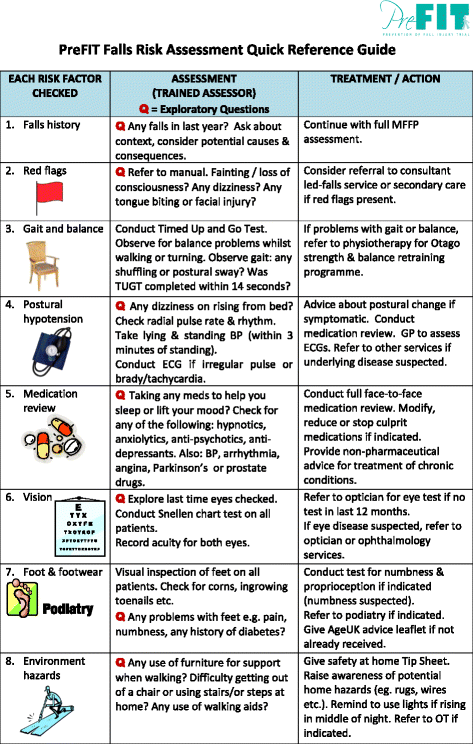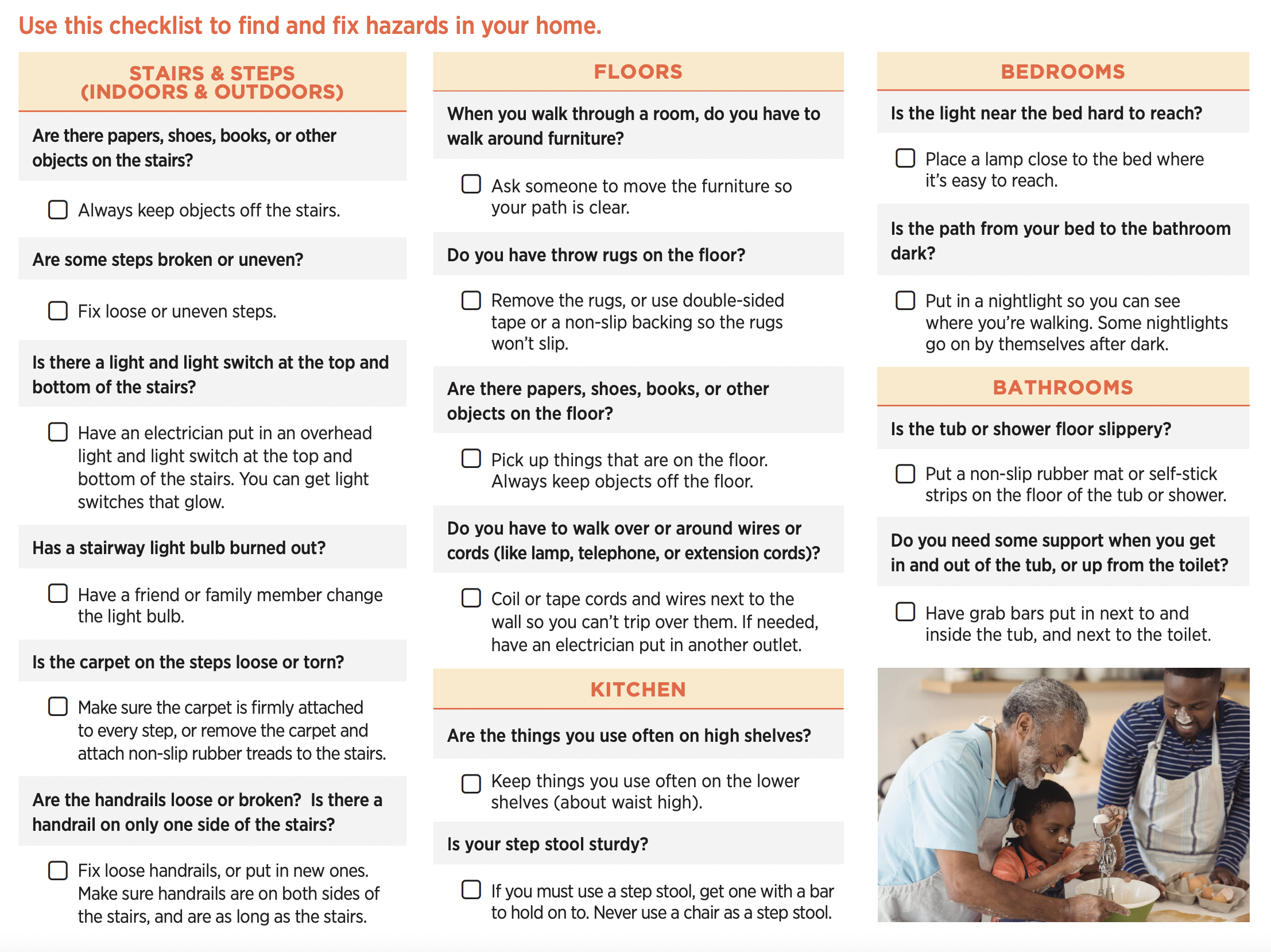Dementia Fall Risk Fundamentals Explained
Dementia Fall Risk Fundamentals Explained
Blog Article
Some Known Details About Dementia Fall Risk
Table of ContentsSee This Report on Dementia Fall RiskThe 8-Second Trick For Dementia Fall RiskA Biased View of Dementia Fall RiskAll about Dementia Fall RiskDementia Fall Risk Fundamentals Explained
The FRAT has 3 areas: fall risk condition, risk aspect list, and activity plan. A Fall Risk Status includes data regarding background of recent drops, drugs, emotional and cognitive status of the individual - Dementia Fall Risk.If the person scores on a risk aspect, the corresponding number of points are counted to the client's autumn threat score in the box to the far best. If a patient's fall danger score amounts to five or higher, the person goes to high threat for drops. If the person ratings just 4 factors or lower, they are still at some risk of dropping, and the nurse should utilize their ideal scientific analysis to take care of all loss danger factors as part of a holistic treatment strategy.
These standard strategies, generally, assist establish a risk-free atmosphere that reduces accidental drops and defines core preventative procedures for all clients. Signs are crucial for clients at danger for falls. Healthcare providers require to recognize who has the problem, for they are responsible for implementing activities to advertise person security and prevent drops.
Fascination About Dementia Fall Risk
Wristbands must include the client's last and very first name, day of birth, and NHS number in the UK. Information need to be printed/written in black versus a white background. Only red color ought to be made use of to indicate unique person standing. These referrals follow current developments in client identification (Sevdalis et al., 2009).
Items that are too far might need the patient to reach out or ambulate unnecessarily and can possibly be a threat or add to drops. Aids stop the individual from heading out of bed without any kind of assistance. Nurses react to fallers' telephone call lights a lot more swiftly than they do to lights launched by non-fallers.
Aesthetic problems can substantially trigger falls. Hip pads, when put on properly, might minimize a hip fracture when loss takes place. Maintaining the beds closer to the flooring minimizes the danger of drops and serious injury. Positioning the bed mattress on the floor significantly reduces fall threat in some health care settings. Reduced beds are made to decrease the distance a patient drops after moving out of bed.
6 Simple Techniques For Dementia Fall Risk
Patients who are tall and with weak leg muscle mass that attempt to rest on the bed from a standing position are most likely to fall onto the bed since it's as well reduced for them to lower themselves securely. If a tall client attempts to obtain up from a low bed without aid, the patient is likely to fall back down onto the bed or miss the bed and fall onto the floor.
They're designed to advertise prompt rescue, not to protect against drops from bed. Apart from bed alarms, enhanced supervision for high-risk people also may aid protect against drops.

Clients with a shuffling stride rise fall chances considerably. To minimize loss danger, shoes ought to be with a little to no heel, thin soles with slip-resistant walk, and sustain the ankle joints. Encourage individual to utilize nonskid socks to prevent the feet from sliding upon standing. However, encourage patients to put on ideal, well-fitting shoesnot nonskid socks for ambulation.
Some Ideas on Dementia Fall Risk You Should Know
Clients, specifically older adults, have actually decreased aesthetic capacity. Illumination an unfamiliar environment aids increase exposure if the patient need to obtain up in the evening. In a study, homes with sufficient lights report less falls (Ramulu et al., 2021). Renovation in lighting in your home might reduce loss rates in older grownups (Dementia Fall Look At This Risk). The usage of gait belts by all health and wellness care service providers can advertise safety and security when assisting individuals with transfers from bed to chair.

Caretakers are reliable for guaranteeing a protected, secured, and secure atmosphere. Studies showed extremely low-certainty evidence that caretakers reduce autumn danger in severe care medical facilities and only moderate-certainty that alternatives like video clip surveillance can minimize caretaker usage without boosting autumn risk, recommending that sitters are not as beneficial as at first believed (Greely et al., 2020).
The 20-Second Trick For Dementia Fall Risk

Enhanced physical conditioning reduces the danger for falls and limits injury that is sustained when autumn transpires. Land and water-based workout programs may be in a similar way useful on balance and gait and consequently decrease the threat for falls. Water workout may add a positive advantage on balance and stride for ladies 65 years and older.
Chair Rise Workout is a basic sit-to-stand exercise that assists enhance the muscular tissues in the thighs and butts and enhances mobility and self-reliance. The objective is to do Chair Surge exercises without making use of hands as the client comes to be stronger. See sources section for a detailed direction on how to do Chair Surge exercise.
Report this page